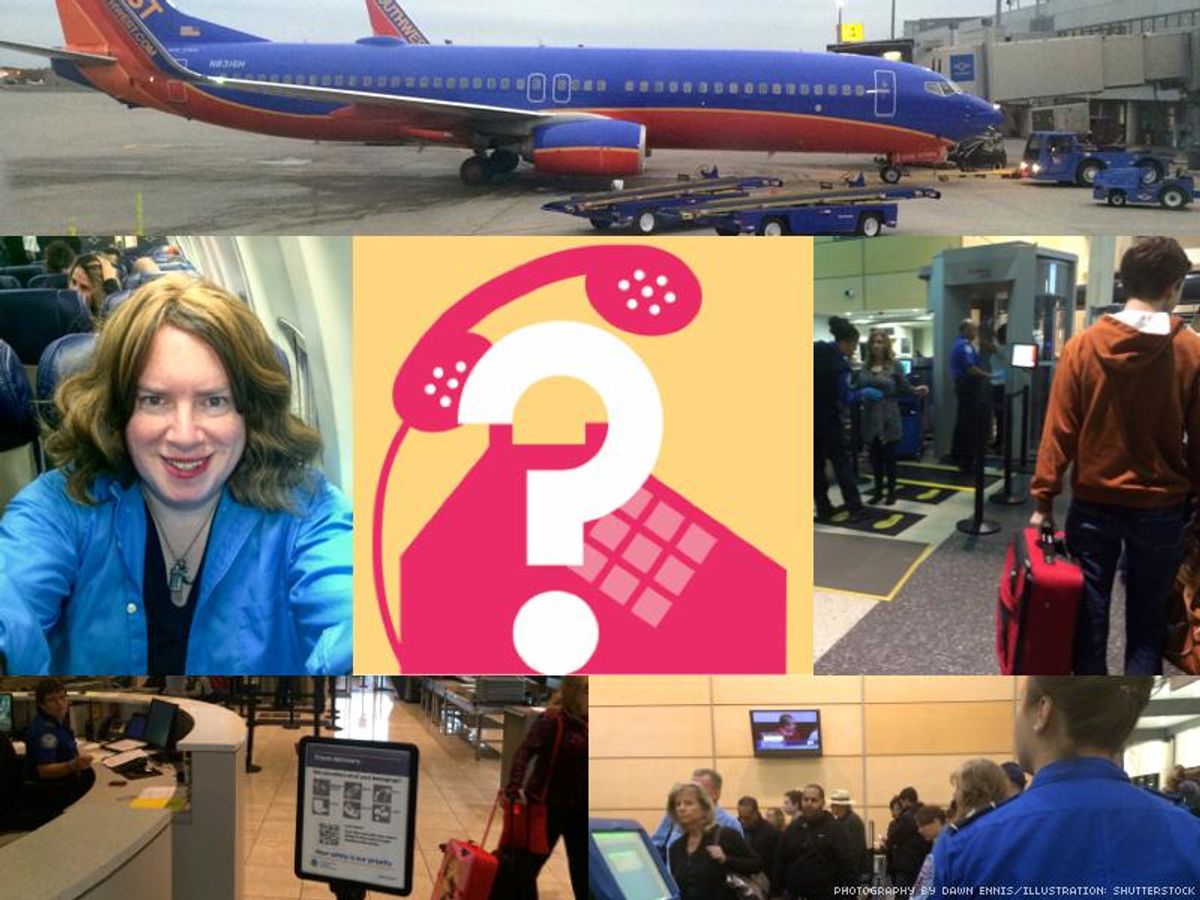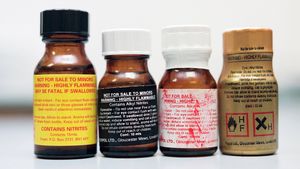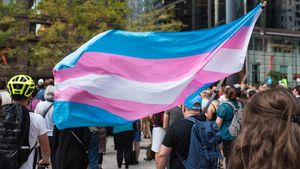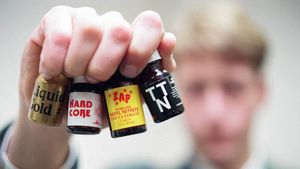Six weeks have elapsed since a transgender woman, Shadi Petosky, live-tweeted her detention by Transportation Security Administration agents at Orlando International Airport in Florida, and so far there's been little movement by the agency to reassure transgender travelers they won't encounter an issue the next time they step into the airport security screening arena.
Meanwhile, an overwhelming majority of experiences reported to The Advocate by trans women who have traveled in the last six weeks have been positive. Each praised the professional and courteous manner in which they were treated.
But that was not a universal experience.
A spokesman for the TSA, Michael England, tells The Advocate there is "nothing to report yet" in terms of the TSA's civil rights investigation into the Petosky incident or regarding the agency's commitment to find a new word to replace the term "anomaly" to describe perceived inconsistencies in a person's anatomy when going through a body scanner. England also declined to report any change or adjustment in TSA screening policies for trans passengers.
In an interview with The Advocate last month, Kimberly Walton, assistant administrator of TSA's Office for Civil Rights and Liberty, said concerned travelers should be assured that TSA "policies and procedures focus on ensuring that all passengers are treated with dignity, respect, and courtesy.
"I would like them to know that they can ask for a private screening. That is available at every airport across this country, if they need to have a private screening.
"The other thing is that they can call in to our call center to get information, if they have questions, if they have concerns, they can call in advance. We also have a protocol where, if a person has concerns, that we can even notify the airport in advance of their travel, and the travel itinerary, so they should absolutely call."
And so we absolutely did.
The instructions from the TSA were that anxious travelers should identify themselves as trans, and ask to notify staff working at security checkpoints about their identity before arriving at the airport.
I'm a transgender woman, and on October 16, after purchasing a ticket to travel from Hartford, Conn., to Los Angeles, I dialed the hotline number Walton provided in our interview: (855) 787-2227.
I was greeted by a recording. "Thank you for calling TSA Cares," said the woman, who then explained my call might be monitored or recorded for quality purposes.
"TSA Cares serves as a dedicated resource specifically for passengers with disabilities, medical conditions, or other circumstances who want to prepare for the screening process prior to flying," the voice informed me.
Following a prompt, l was swiftly connected to an agent named Julie, who greeted me with her name and asked for mine. I did not identify myself as a journalist and was not asked my profession, only my name.
Although the guidance from the TSA was to identify myself as trans, I decided to withhold that information at first, since most transgender people would be reluctant to share that kind of personal information with a stranger within the first few moments of a preliminary conversation.
"Hello, my name is Dawn Ennis," I said, spelling my name. "I'm traveling on November 1 and I read that if I'm worried about going through security and want to avoid a problem I should call this number and register. Am I in the right place?"
"Yes, sir," said Julie.
"OK, great, but Julie, please don't call me, 'sir,'" I asked politely. "I have a sore throat, so I'm guessing I must sound horrible."
Julie was apologetic. "Oh, I am sorry, sir."
"Um, Julie?"
"Yes, sir?"
"I'm a woman. My name is Dawn," I said, patiently. "I've asked you before, would you please stop calling me 'sir'? OK?"
"Yes, I'm sorry, sir, I mean, ma'am. How can I help you?"
I took a deep breath, then plunged in.
"Well, like I said, I'm flying on the 1st and I want to avoid a problem at the airport when I go to the security screening area. And I'm calling to register."
Julie took my flight information -- which later made my journalist Spidey senses tingle, as I questioned whether I really wanted to volunteer to let the government track my comings and goings. But the whole point of this exercise was to participate fully, and so I shook off any lingering conspiracy theories.
"What is the nature of your disability?" Julie asked me.
"Uh, I'm not disabled," I told her.
"I'm sorry, ma'am," she said. "Then can you describe for me the medical condition you wish to register?"
"I don't have one of those either." I could sense Julie was beginning to wonder why I was calling.
"Oh," said Julie. "Well, I'm sorry, ma'am, then I'm not clear about the nature of your call?"
"Well, I'm calling because I have been patted down a number of times whenever I go through the imaging scanner. I'd like to avoid anyone touching me, frankly. And I read that this is the number to call, because..." I told her, pausing, "I'm transgender."
"Oh!" she said, and then paused. In my mind's eye, I imagined Julie scanning her files for what to do when someone says "I'm trans."
There was a long period of silence. I watched the clock on my computer as two minutes elapsed.
"Julie, are you still there?" I asked.
"Hold, please," she said abruptly, placing the call on hold with only mildly annoying Muzak.
After two more minutes, Julie returned to the line, with a smile in her voice.
"All right, so Ms. Ennis, I am notifying the Multicultural Branch of the Travel Engagement Division about your inquiry. Do you have any questions for me?" She asked confidently.
"Well, what is that, the Multicultural Branch?" I asked Julie.
"It's a division of the Civil Rights and Liberties Ombudsman," she said.
"And they are...?" I inquired. "I'm not clear how this is helping me."
"That is the department that can address your concerns. Do you have any other questions?"
I proceeded to ask Julie three questions:
"Now that I've registered, will I be able to go through the security screening process on November 1 without having to worry about requiring 'additional screening,' such as being patted down?
"What should I do when I arrive at the screening area? Do I need to identify myself as transgender? I'd prefer I didn't have to unless there's a problem and that's the only way to resolve it.
"What should my friend who is intersex do when they fly, since they identify as neither male nor female? How will that affect the imaging scanner?"
Julie took down all my questions and repeated them to make sure she got them right. She did, and I thanked her for being so kind and thorough.
We said goodbye, I hung up, and waited.
Two days later, on Sunday, I received an email from the Civil Rights and Liberties division handling such inquiries.
Dear Dawn Ennis,
Thank you for your inquiry regarding screening of transgender persons by TSA. Please find attached our most current information on the subject.
Sincerely,
Multicultural Branch
Traveler Engagement Division
Civil Rights and Liberties/Ombudsman Traveler Engagement Transportation Security Administration
Attached was a PDF document, titled "Tips for the Transgender Traveler: Know Before You Go," which laid out in 850 words what I should do to prepare for my trip and TSA's screening process.
Notably, this document provided a different number to contact TSA in advance, via the TSA Contact Center at (866) 289-9673. It also provided a website and email for those wanting more information and to report issues or complaints, through a program called "Talk to TSA." That office was also the suggested outlet for travelers seeking to report what they considered unprofessional conduct, while reports of "discriminatory conduct" "because of a protected basis" were directed to both the TSA's and Department of Homeland Security's Office of Civil Rights and Liberties.
But the tip sheet TSA provided didn't answer any of my questions. So when I showed up at Hartford's Bradley International Airport early on the morning of November 1, I just got in line, like everyone else. I showed my driver's license (which identifies me as the woman I am), took off my shoes, removed my laptop, made sure my pockets were empty and, when it was my turn, stepped inside the imaging chamber.
A male agent beckoned me to step out, looked at the imaging screen, and then summoned a female agent who told me she'd be touching my neck, where I was wearing a necklace with two metal pendants.
In a matter of seconds, she had completed her check, and I was on my way. I had no trouble whatsoever.
If calling TSA Cares ahead of time helped make that happen, I'll call again -- but I never received any indication that anyone at the airport or TSA knew I was coming. When I asked if there was some sort of invisible-to-me marker on my name indicating that I'd expressed concern, I was met with a look that made me regret mentioning it at all.
I've also yet to hear back about the question I asked on behalf of my intersex friend.













































































